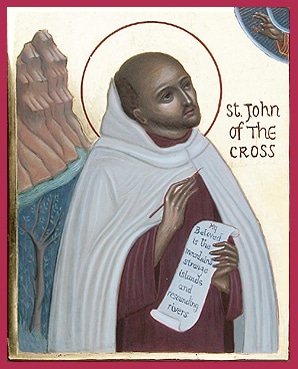A pleasure again to speak about Spirituality, especially "as a science".
This science is not just a pure science. Or better said, it is the Science of the Master in Spiritual life.
In order to become a master (an Elder Monk, or Starets, or simply a Spiritual Master) it is important to combine three things, or at least two of them (1 & 3):
1- Experience of God,
2- Science (Spiritual Theology) and
3- Discernment.
 |
| "A cord of three strands is not quickly broken." (Eccle 4:12) |
The combination of these three qualities, might make a "Spiritual Master". Then after, if he/she is very good at the "Science", then he can teach it. If you remove the "experience of God", you are sort of then teaching cooking without ever having tasted any dish. Ridiculous, but it happens.
This is why it is important to have the experience of God, to practise real prayer, real contact with God, according to the Living Tradition of the Church. If you don't have the Fire, you can't transmit it, you can't show it, you can't explain it. Your words will be empty. Right?
Starting the experience of God will certainly bring 2 things:
- wanting to learn more and more about Spiritual life (the science of it): by reading, by studying and by doing research
- wanting to be guided by a Spiritual Guide, or Master: this will bring discernment
Seeking Spiritual Direction (you can call it as you like: "spiritual accompaniment", "spiritual counselling", ...) is fondamental, because one needs living discernment, or if you prefer: applied discernment. One thing is to study medicine and another is to go to the doctor.
We are not born with spiritual discernment. We can be very smart, we can be very practical, we can have very good common sense. They help, of course, with no doubt. But they are not "spiritual discernment".
"Spiritual discernment" is something that takes time to "enter" in us, and it has various steps in it - it grows in us, paralel to our spiritual growth. The needed discernment in the beginning of the spiritual journey, is not the same at all after a while: when one needs a different spiritual food. Who decides? Who notices the new need?
Without seeking discipleship, if one dives into spiritual life, this is to be considered seriously risky. It is like entering in a dark room, not being able to see the furniture in it. While the Spiritual Master (or the Spiritual Guide), sees better than us and can guide us and help us move in this huge dark room, and lead us to the following rooms. It is a huge gift from God to find good Spiritual Guides. One has to pray a lot for that Grace.
So,... back to what I was saying in the beginning: "Spiritual theology" is a science, yes, but it is not a science that one learns just by his/her own brain effort. Not at all. While having its rationality, it is about the Action of the Holy Spirit in us, and it requires (and can grow with the condition of) : experience and discernment.
One can read Spiritual Theology books, study it, and have diplomas (which it good), but with no experience and no discernment received through discipleship, he/she cannot be good in teaching "Spiritual Theology". He won't be transmitting Life, Fire...
Hope that helps...
Pray for me...
(to be continued)






